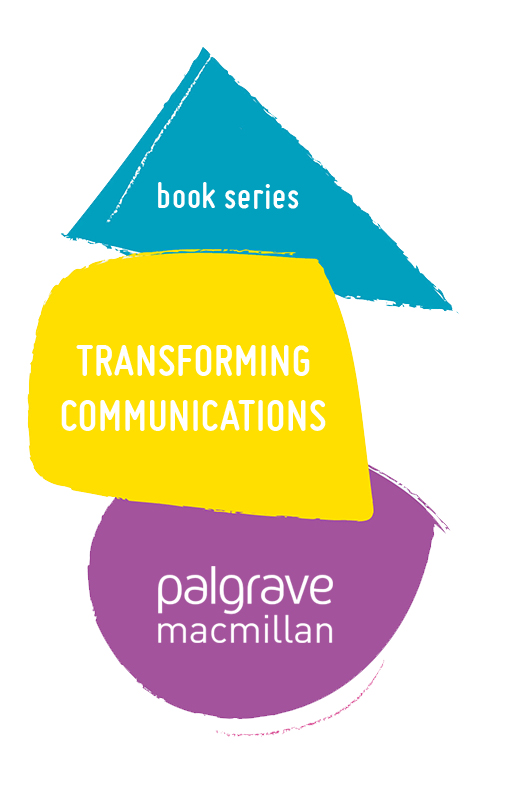Transforming Communications –
Studies in Cross-Media Research
Concept

Recent changes taking place within the media environment also constitute a challenge to media and communication studies. With the increasing ‘mediation of everything’ (Livingstone 2009) the clearly defined area of mass-communication research and mass-media aesthetics – on which media and communication studies built their success – became questionable. With technical communication media becoming an integral part of every domain of the social world, it is necessary to understand them in a much wider sense and with a much deeper relatedness to each other. This shift in media and communication research is marked by the emergence of broader concepts and theoretical debates as well as new forms of empirical research.
In the theoretical arena, a growing interest is emerging in ‘mediation’ (Martín-Barbero 1993; Silverstone 2005) and ‘mediatization’ (Lundby 2014) processes. While ‘mediation’ as a concept puts emphasis on the question as to how our social world is constructed through our media practices, ‘mediatization’ reflects the change of culture and society as intertwined with changes taking place in the sphere of communications. However, in present times both have to be analysed in a cross-media perspective: Attempts have been made to describe the media environment as one of ‘transmedia’ (Jansson 2013), ‘polymedia’ (Madianou/Miller 2013) or a ‘media manifold’ (Couldry 2012).
While these concepts vary in detail they share the fundamental point that it is not the emergence of a single medium but the interrelated variety of media that matters, which results in a new complexity surrounding our processes of communication. Concepts like network, assemblage and figurations were established to investigate the complexity of communication processes across different media. Again, the concepts differ in their detailed history as well as their empirical orientation. However, they share the fundamental trajectory and offer analytical tools for investigating the relatedness of the present cross-media complexity.
In consequence of this shift in focus, the general discussion surrounding ‘non media-centric’ media and communications research has been gaining importance, i.e. research that focuses on communications practices across media without assuming a general importance for all social processes (Morley 2009; Krajina et al. 2014).
The increasing relevance of this kind of research is at present documented by thematic calls and debates in various journals like Communication Theory, Communications, Convergence, Journalism Studies, Media Culture & Society or MedieKultur, just to name a few recent examples. However, despite the undeniable interest in cross-media research, up to now there is no book series which offers a place to collect the most important contributions in greater depth than journal articles make possible. ‘Transforming Communications’ intends to fill this void.
References:
Couldry, Nick (2012): Media, society, world: Social theory and digital media practice. Cambridge, Oxford: Polity Press.
Jansson, André (2013): Mediatization and social space: Reconstructing mediatization for the transmedia age. In: Commun Theor, 23 (3), pp. 279-296.
Krajina, Zlatan/Moores, Shaun/Morley, David (2014): Non-media-centric media studies: A cross-generational conversation. In: European Journal of Cultural Studies, http://ecs.sagepub.com/cgi/doi/10.1177/1367549414526733
Livingstone, Sonia M. (2009): On the mediation of everything. In: Journal of Communication, 59 (1), pp. 1-18.
Lundby, Knut (ed.) (2014): Mediatization of communication Berlin, New York: de Gruyter.
Madianou, Mirca/Miller, Daniel (2013): Polymedia: Towards a new theory of digital media in interpersonal communication. In: International Journal of Cultural Studies, 16 (6), pp. 169-187.
Martín-Barbero, Jesús (1993): Communication, culture, and hegemony: From the media to mediations. London, Thousand Oaks, New Delhi: Sage.
Morley, David (2009): For a materialist, non-media-centric media studies. In: Television & New Media, 10 (1), pp. 114-116.
Silverstone, Roger (2005): The sociology of mediation and communication. In: Calhoun, Craig/Rojek, Chris/Turner, Bruce (ed.): Sage handbook of sociology. London: Sage, pp. 188-207.

University of Bremen
ZeMKI, Centre for Media, Communication and Information Research
Linzer Str. 4 | D-28359 Bremen, Germany
Phone: +49-421-218-67601
Fax: +49-421-218-98 67601
http://www.zemki.uni-bremen.de

Hans-Bredow-Institute for Media Research
Rothenbaumchaussee 36 | D-20148 Hamburg, Germany
Phone: +49-40-450217-0
Fax: +49-40-450217-77
http://www.hans-bredow-institut.de

Palgrave Macmillan
4 Crinan St | London N1 9XW, United Kingdom
Phone: +44-20-78334000
Fax: +44-20-78334832
http://www.palgrave.com